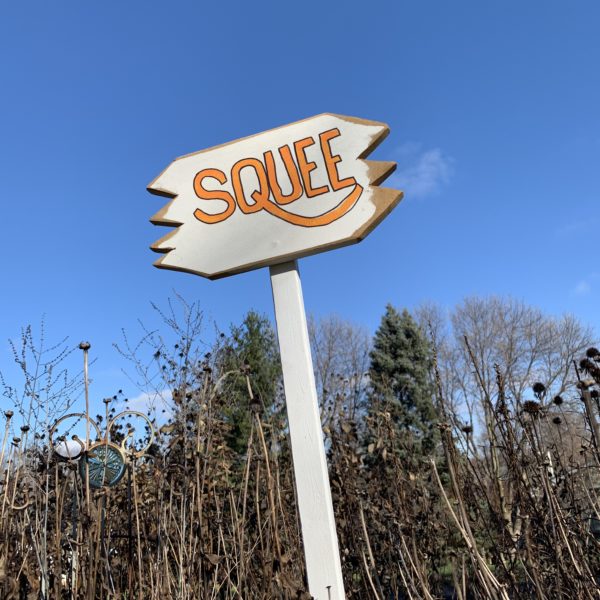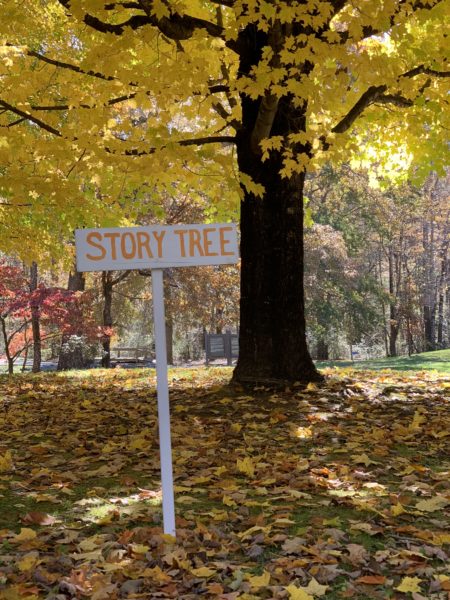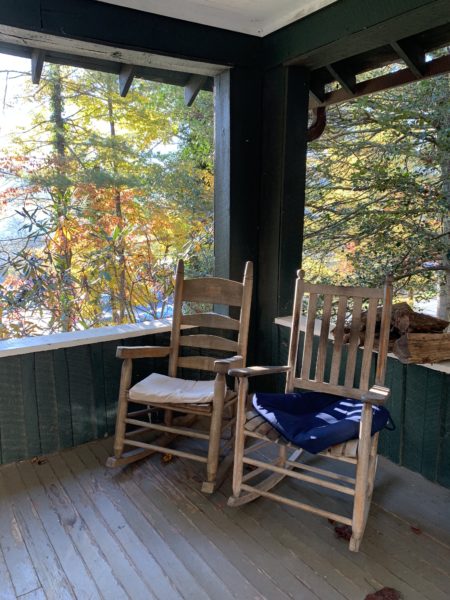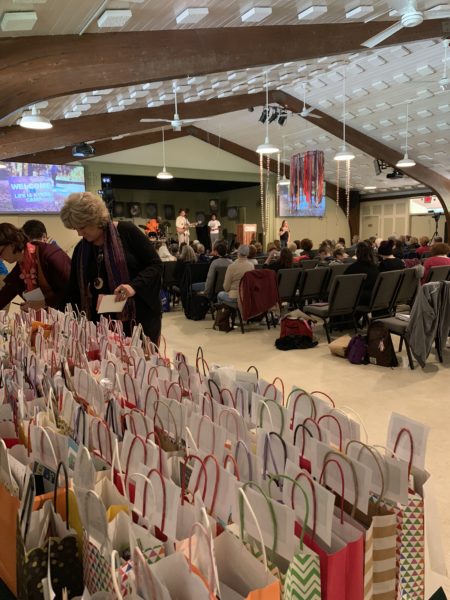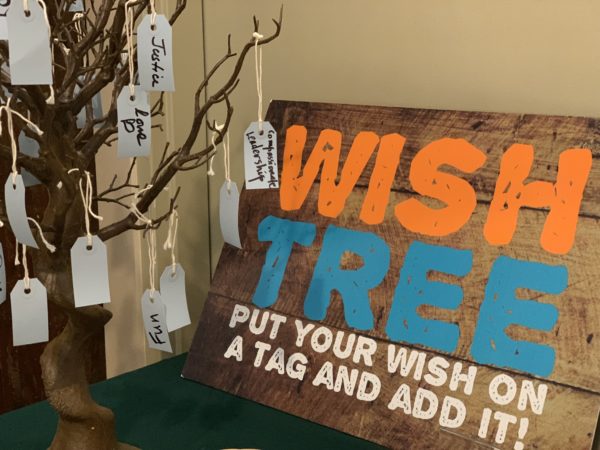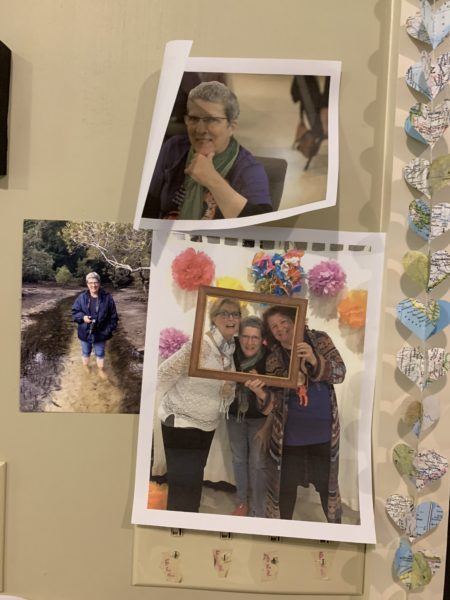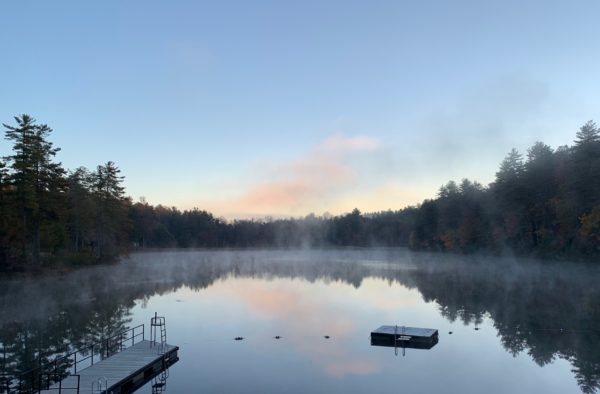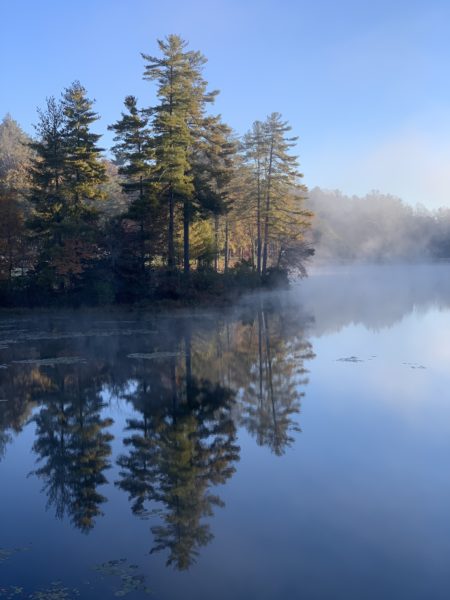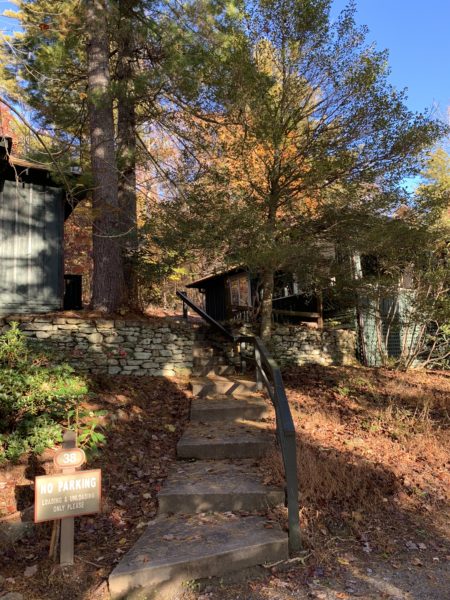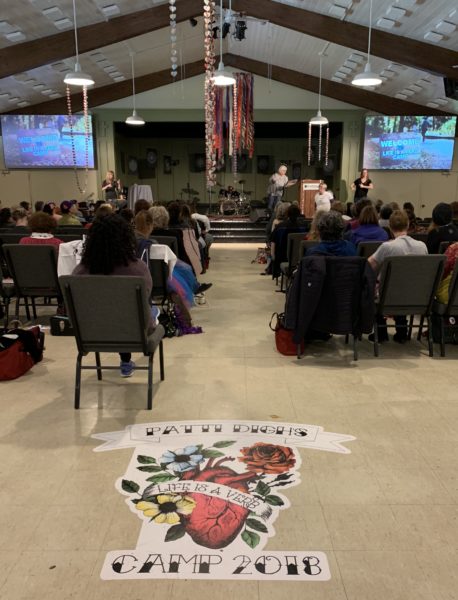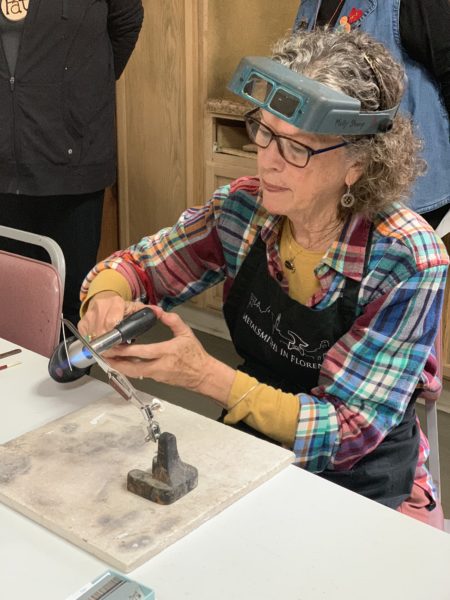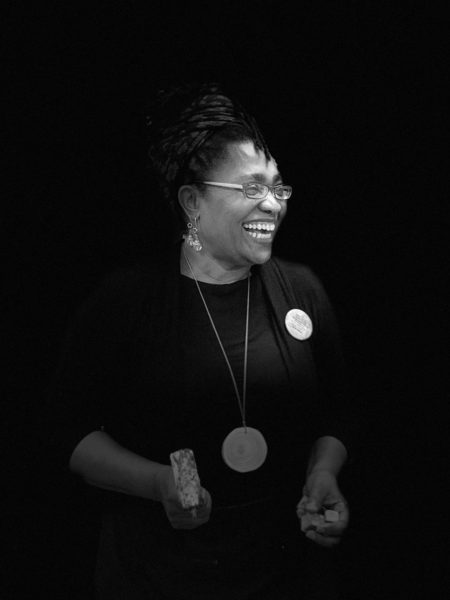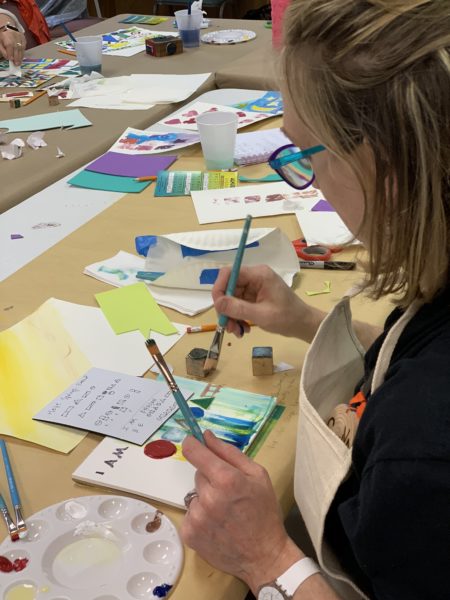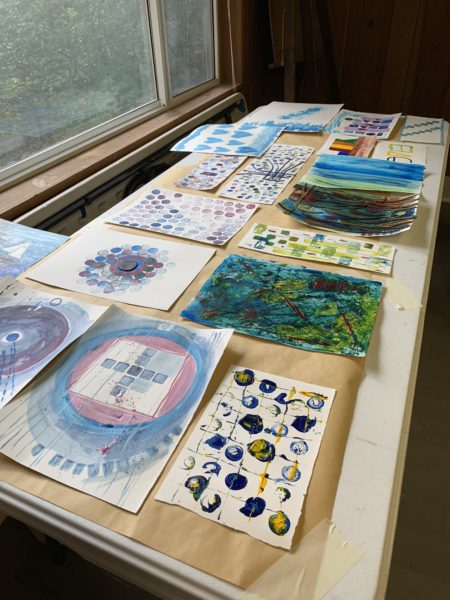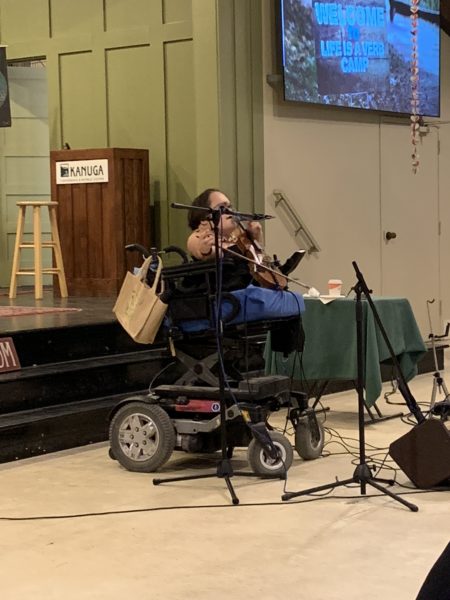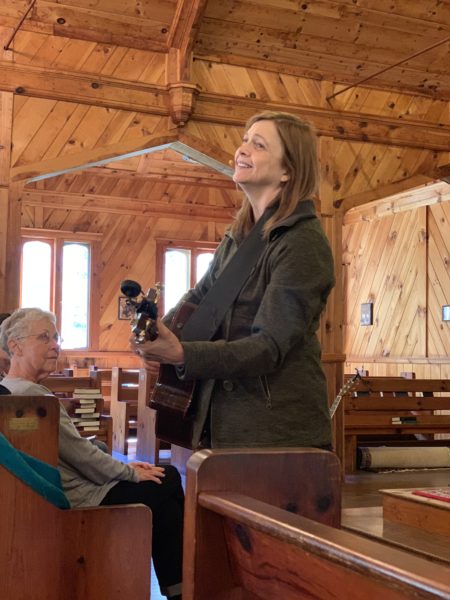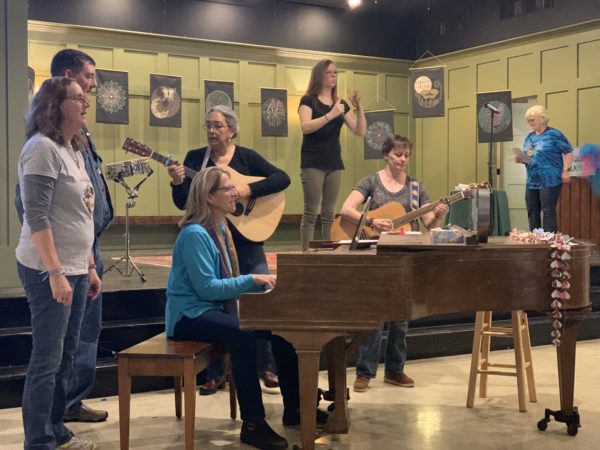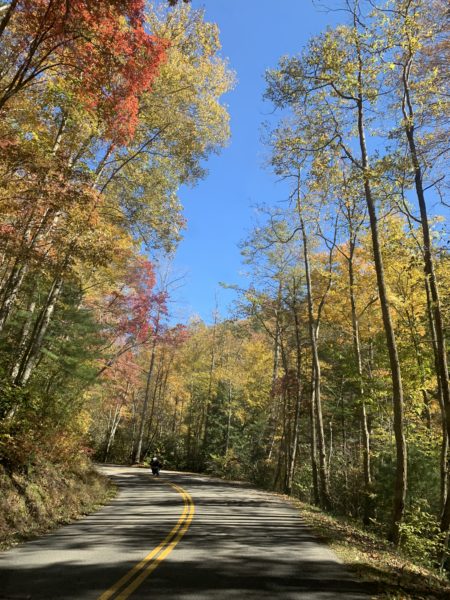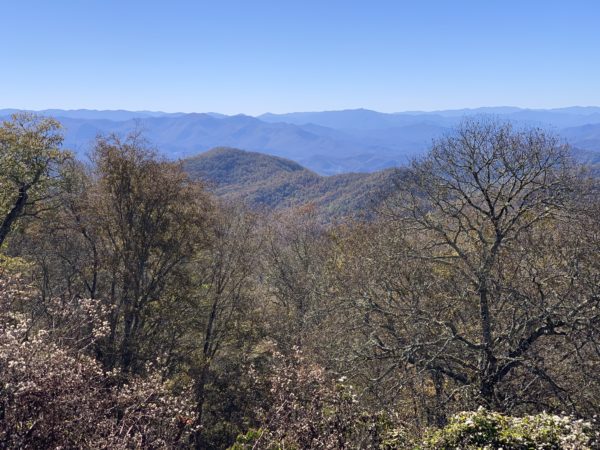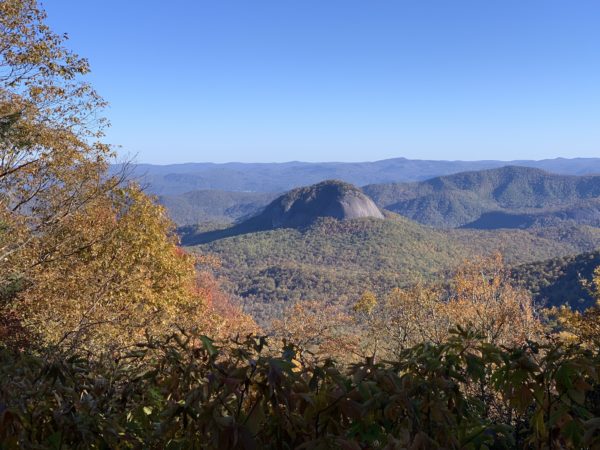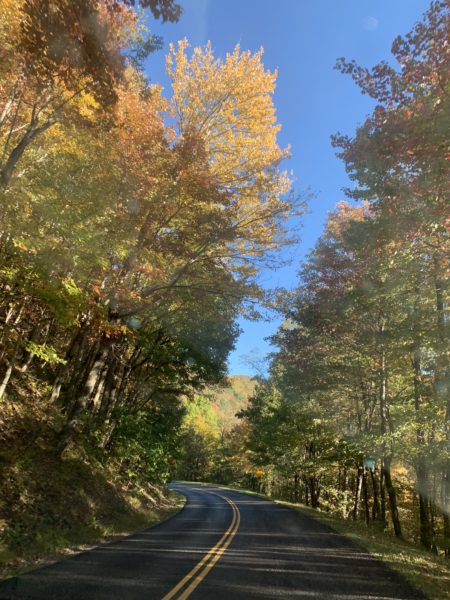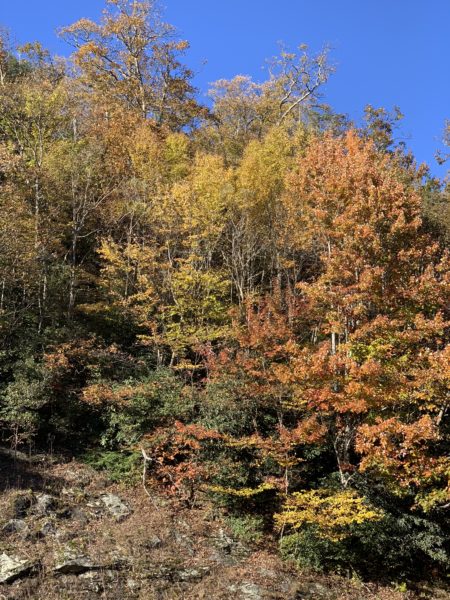January 2018
1. World Enough & Time, On Creativity and Slowing Down by Christian McEwan
“Slowness is an option for everyone on the planet, not just a privilege reserved for the very wise or very young or very rich. All of us can decide (and the phrase is a potent one) to take our time. But to do so, we have to set aside our busy competence and practicality, at least for a while, and adopt a gentler and more expansive way of being.”
“Why has the pleasure of slowness disappeared?” asks the writer Milan Kundera. “Ah, where have they gone, the amblers of yesteryear? Where have they gone, those loafing heroes of folksong, those vagabonds who roam from one mill to another and bed down under the stars?”
A book extolling the gifts of slowing down, she was “preaching to the choir” with this message. Enjoyed the book. 5/5
2. The Lonely City: Adventures in the Art of Being Alone by Olivia Laing
“You can be lonely anywhere, but there is a particular flavour to the loneliness that comes from living in a city, surrounded by millions of people…”
I wanted to like this book more than I did. So dense with facts, I slogged my way through half of the book before deciding it was not worth any more time or effort. Some of it really worked — the memoir part, the exploration of loneliness. But the extremely details accounts of the 4 highlighted artists and their psyches, something that should have appealed to my interests, was just too much. 2.5/5
3. A Little Life by Hanya Yanagihara
“One thing I’ve learned,” she said, “you have to talk about these things while they’re fresh. Or you’ll never talk about them. I’m going to teach you how to talk about them, because it’s going to get harder and harder the longer you wait, and it’s going to fester inside you, and you’re always going to think you’re to blame. You’ll be wrong, of course, but you’ll always think it.”
This is a devastating book. And it was impossible for me to stop reading once I had begun. Strong characters; strong friendships. Strong portrayal of the life long legacy of child abuse, it’s grip on the victim’s mindset, beliefs of self that are impossible to eradicate. Utterly beautiful, the writing and the telling of the story, and utterly heartbreaking.
I alternated between an Audible version and my written copy, my way of distancing a bit from some of the more difficult to read and absorb passages. 5/5
4. Etta and Otto and Russell and James by Emma Hooper
A walk across Saskatchewan. A story of relationships. Exquisite storytelling. 4/5
5. The Human Line by Ellen Bass
“Poetry,” writes best-selling author Ellen Bass, “is the way I pay attention, appreciate, give praise, struggle, grieve, rage, and pray. It’s the way I embody my love for the world.”
Bass’s 7th book of poems. I love her style; she writes the sort of poems I aspire to write, but not nearly as successfully. 4/5
6. One Continuous Mistake: Four Noble Truths for Writers by Gail Sher
“We are what we repeatedly do,” Aristotle said. “Excellence . . . is not an act, but a habit.”
“What is the best way to write? Each of us has to discover her own way by writing. Writing teaches writing. No one can tell you your own secret.’
The four ways:
1. Writers write.
2. Writing is a process first.
3. You don’t know what your writing will be until the end of the process.
4. If writing is your practice, the only way to fail is to not write.
On writing as a spiritual practice. Much to be considered here, even if the Zen approach with emphasis on meditation is not my preferred approach. 4.5/5
7. Wild Comfort: The Solace of Nature by Kathleen Dean Moore
“This book moves from gladness to sorrow, as life often does, and climbs through what might be prayer or a kind of stillness, to restored meaning and hope, to peace, maybe even to celebration and the courage to be glad again.”
Meditative, resourceful. contemplative musings. 4.5/5
8. Drawing Mandala: Step-by-Step with Pictures by Nadia Hazem
30 pages of drawings, Zentangle-style. Not much insight. 2/5
9. I Praise My Destroyer: Poems by Diane Ackerman
Poetry by naturalist Diane Ackerman. Lush and vibrant. 4/5
10. Writing from the Senses: 59 Exercises to Ignite Creativity and Revitalize your Writing by Laura Deutsch
“Writing about the palette of place can create images in the mind as stunning as art or photography.”
A smattering of useful prompts for adding sensory details to writing. 3/5
11. The Red Tent by Anita Diamont
“If you want to understand any woman you must first ask about her mother and then listen carefully. Stories about food show a strong connection. Wistful silences demonstrate unfinished business. The more a daughter knows about the details of her mother’s life – without flinching or whining – the stronger the daughter.”
A historical novel told by Dinah, who is briefly mentioned in the Book of Genesis, and revolves around The Red Tent and the rites and rituals of ancient womanhood.
Audible. At 336 pages, this book was a good candidate for the audio version. 5/5
12. The Weather of Words: Poetic Inventions by Mark Strand
“We tend to be much more comfortable reading a novel when we don’t feel distracted by its language. What we want while reading a novel is to get on with it. A poem works the opposite way. It encourages slowness, encourages us to savor every word. It is in poetry that the power of language is most palpably felt.”
Essays about poetry. I prefer to read poetry than read words about poetry. 3/5
13. Allie and Bea by Catherine Ryan Hyde
This is not my sort of book. a light version of the developing relationship between an older widow who is financially struggling and a teen who is adrift after her parents’ arrest for fraud and then her encounter with a group home. Ugh.
I can only think I must have gotten a free copy. 2/5
14. The Art of Memoir by Mary Karr
This is one of my favorite books about memoir. I love Mary Karr’s ancedotes, especially when they are told in her own voice (Audible). I have both an Audible copy which I often listen to while traveling and a written copy which I peruse on occasion. She is a master storyteller, even when her subject is a literary form. 5/5
15. What We Carry by Dorianne Laux
Book of strong poetry; Laux writes with a storyteller quality. 4.5/5
16. The Language of Bleeding by Jessica Helen Lopez
English/Spanish poetry by New Mexican, Jessica Helen Lopez. Motherhood, womanhood, all written in distinctive and strong voice. 4/5
17. Haiku Mind: 108 Poems to Cultivate Awareness and Open Your Heart by Patricia Donegan
“Haiku mind is the awareness to tune in to the vastness of the moment. Actually to create and appreciate this tiny form of poetry, one needs a vast mind like the sky. This is known in Tibetan Buddhism as dzogchen: that our natural state of mind is vast and clear as the sky. When we can pause and relax in the moment, that is our haiku mind: the awakened, openhearted awareness that we can always tap into.”
A thematic collection of Haiku by both ancient writers (Basho, Issa…) and modern poets (Elizabeth Searle Lamb, Jack Kerouac…) with helpful and enjoyable commentary. Enjoyable. 5/5
February 2018
18. Pachinko by Min Jin Lee
Historical Fiction of a Korean family in Japan. Storytelling at its finest. Audible version. 5/5
19. Yellow Glove by Naomi Shihab Nye
Poetry by a favorite poet. 4.5/5
20. Darkness Visible: a Memoir of Madness by William Styron
“Depression is a disorder of mood, so mysteriously painful and elusive in the way it becomes known to the self—to the mediating intellect—as to verge close to being beyond description.”
Powerful memoir about depression. 4/5
21. Theft by Finding: Diaries 1977-2002 by David Sedaris
Diary entries that tell a rather convoluted story. Well received by the critics, but not my style. 3.5/5
22. A Trail through Leaves: The Journal as a Path to Place by Hannah Hinchman
I most enjoyed the early section of the book, lots of insight and personal anecdote on “why journal?” and journaling as a commonbook practice. 4/5
23. The Handmaid’s Tale by Margaret Atwood
A classic that I somehow did not read until now. 5/5
24. A Woman’s Shed: Spaces for Women to Create, Write, Make, Grow, Think, and Escape by Gil Heriz
A gift. Not my thing. Ho hum. 3/5
25. The Garden of the Evening Mist by Tan Twan Eng
Beautifully written. Setting is Malaysia 1949. Gardening, The practice of the tattoo. Communist takeover. Well paced. Audible version. 5/5
26. Little Fires Everywhere by Celeste Ng
Another Audible listen. Well crafted story takes place in upper class Ohio suburbia. Adoption. Excellent. 5/5
27. Luminaries of the Humble by Elizabeth Woody
Poetry. 4/5
March 2018
28. The Round House by Louise Erdrich
A chronicler of Native American story. Touching. Heartbreaking. Eye-opening. 4.5/5
29. Fuel by Naomi Shihab Nye
Poetry collection. Engaging. 4.5/5
30. Before We Were Yours by Lisa Wingate
Wow! An eye-opening tale of an adoption scandal in 1940s Memphis and parallel stories of two of the family lines affected. Audible version. 5/5
31. Potato Soup by Twyla M. Hansen
Went to a poetry reading by Hansen in Nebraska and purchased this book while there. Folksy, place poetry. 3/5
32. Lincoln in the Bardo by George Saunders
Gave up 50 pages in. I love the premise — Lincoln’s story narrated by a dozen characters — but the writing did not hold my interest. 1/5
April 2018
33. The Wild Edge of Sorrow: Rituals of Renewal and the Sacred Work of Grief by Francis Weller
Instructive guide for dealing with grief. Well researched, well-written, helpful. 4.5/5
34. Lillian Boxfish Takes a Walk by Kathleen Rooney
One of my favorite books of late. But then I love books with New York City settings and I love books with maps, and NYC and a map are both integral to the story. This is a rather charming book about a journey undertaken by 85-year-old Lillian during which she recalls the highlights (and lowlights) of her life while walking through the streets of Manhattan on New Year’s Eve 1984. 4.5/5
35. Homegoing by Yaa Gyasi
Sweeping historical novel beginning in Ghana, then America. Unforgettable characters, exquisite writing. Poignant. I usually base my Audible choices on length of books, figuring I get more for my money. That also allows me to absorb books I might not read due to length. Best is when I have both an Audible and Kindle copy and can switch back and forth depending on circumstances. this was the perfect sort of book for that approach. Complicated enough that it helped to read some of it thus grounding the characters and details in visual memory. 5/5
36. Educated by Tara Westover
Incredible memoir, vast in scope. From the wilderness in Idaho growing up with her isolationist, survivalist family who eschews government interference including education and medical care to a woman educated at Harvard and Cambridge. Choices – education and a new way of life or family and the old ways? 5/5
May 2018
37. Everything We Keep by Kerry Lonsdale
I must have picked up this book for a reason, but I should have put it down long before I did. I usually find redeeming bodies in story lines, but this was the exception. 1/5
38. Embrace Your Inner Wild: 52 Reflections for an Eco-centric World by Mary Reynolds Thompson
The sort of book I generally enjoy, but this read lukewarm to me. I skimmed the last 3/4s to see if there were hidden gems. Not for me. 2/5
39. Water, Wind, Earth & Fire: The Christian Practice of Praying with the Elements by Christine Valters Paintner
40. Registers of Illuminated Villages: Poems by Tarfia Faizullah
A selection of the Rumpus Poetry Book Club.
41. Practice of the Wild by Gary Snyder
42. The Soul of a Pilgrim by Christine Valters PaintNer
43. Seven Sacred Pauses: Living Mindfully through the Hours of the Day by Macrina Wiederkehr
44. Americanah by Chimamanda Ngozi Adichie
45. Karen: A True Story Told by Her Mother by Marie Killilea
46. Spoke by Coleman
June 2018
47. The Art of Slow Writing: Reflections on Time, Craft, and Creativity by Louise DeSalvo
So much information jam-packed into this well-resourced writing book. 5/5
48. Waiting for Snow in Havana by Carlos Eire
I like to read memoir that informs the work of writing my personal memoir:
Reading Waiting for Snow in Havana by Carlos Eire, a memoir about being a child during the Cuban Revolution who was eventually sent to the US as part of the children’s airlift, Project Pedro Pan, in 1962. Eire gives many strong examples of telling the story from a child’s POV. In reading reviews of his work, readers seem to either love his writing or hate it, few in-betweens.
His fans applaud his vivid descriptions, his ability to take you within the scene, of his evocation of raw emotions. I am a fan, by the way. His critics maintain the memoir is light on the actual details of the Revolution and heavy on his privileged boyhood memories of living through the upheaval of the only worlds he has ever known – both in the changes of the political world of his country Cuba and in his personal world.
As a member of the upper-class Eire attended a parochial school with the country’s elite including the sons of Batista. Eire was the son of a judge, and so his perspective IS one of privilege. But to write the story in any other way would have been unrealistic and untrue. He knew of the Revolution from the personal experience of a pre-adolescent, not as a political insider. This is not the memoir to read if one wants political insight, although I find that the child’s POV insight of the regime change rings true and is eye-opening in a powerful way.
He was also the son of a father whose values were skewed towards clinging to the material world and not the filial world, and so must also deal with the betrayal and abandonment of his father, another subject woven throughout the pages and handled with skill.
49. Watermark by Joseph Brodsky
50. The Memoir Project: A Thoroughly Non-Standardized Text for Writing & Life by Marion Roach Smith
51. Vertigo: A Memoir by Louise DeSalvo
52. Long Journey: Contemporary Northwest Poets by David Biespiel
53. American Sonnets for My Past and Future Assassin by Terrance Hayes
A selection of the Rumpus Poetry Book Club.
54. A Small Story about the Sky by Alberto Rios
In a book titled “A Small Story about the Sky,” I am most struck by his many poems that speak of the U.S./Mexico border, and how his border poetry is not at all a “small story” but speaks of a topic that is a looming giant, a story about division and heartbreak.
“We seem to live in a world of maps:
But in truth we live in a world made
Not of paper and ink but of people.
Those lines are our lives. Together.Let us turn the map until we see clearly:
The border is what joins us,
Not what separates us.”an excerpt from Border LInes
